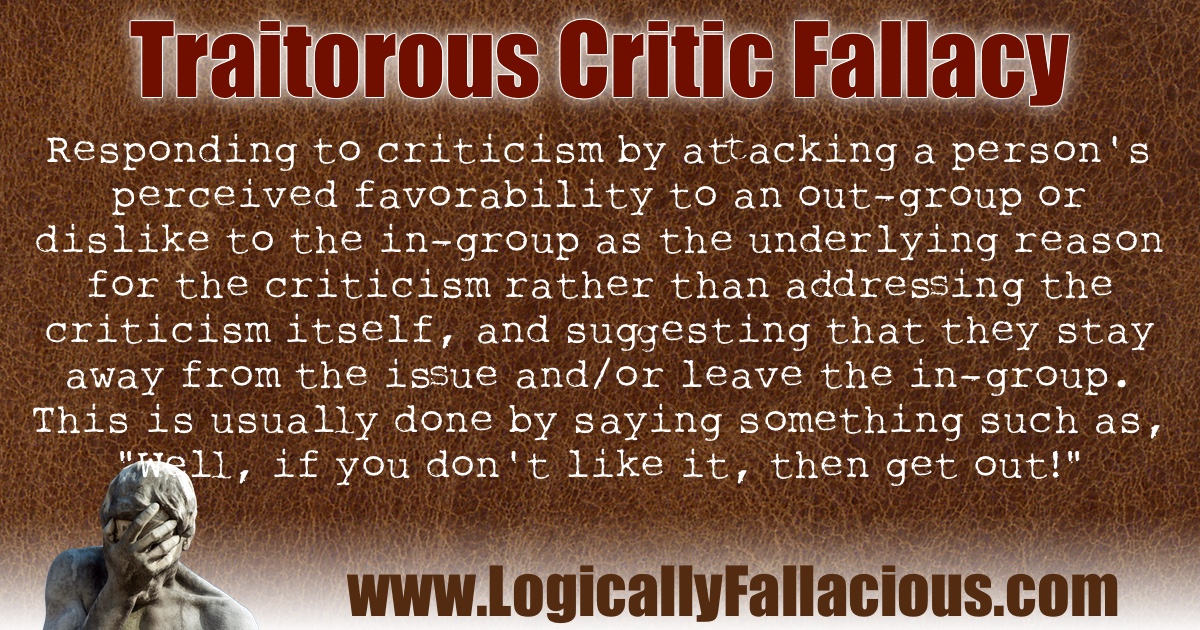Traitorous Critic Fallacy
ergo decedo
Description: Responding to criticism by attacking a person's perceived favorability to an out-group or dislike to the in-group as the underlying reason for the criticism rather than addressing the criticism itself, and suggesting that they stay away from the issue and/or leave the in-group. This is usually done by saying something such as, "Well, if you don't like it, then get out!"
Logical Form:
Person 1 offers criticism against group 1.
Person 2 responds to the criticism by disingenuously asking them why they don't leave group 1.
Example #1:
Gertrude: I am tired of having to fill out these forms all day. Can't we find a more efficient system?
Cindy-Lou: If you're not happy with the way we do things, we can find someone who is!
Explanation: Cindy-Lou did not address the concern, but essentially threatened Gertrude to shut up or lose her job. This example might also be seen as appeal to force .
Example #2:
Steve: In Sweden, college is free for citizens. How come we can't do that here?
Ed: If you like Sweden so much, move there. The USA would be glad to be rid of your liberal ass!
Explanation: Besides begging the question (Steve did not say he liked Sweden), Ed refused to address the question asked and deflected with a disingenuous question on why Steve does not move to Sweden.
Exception: Repeated expressions of favoritism for the out-group and dislike of the in-group could justify a why-don't-you-join-the-out-group type of response.
Tip: Remember the old saying about the grass being greener on the other side.

References:
This a logical fallacy frequently used on the Internet. No academic sources could be found.
Questions about this fallacy? Ask our community!